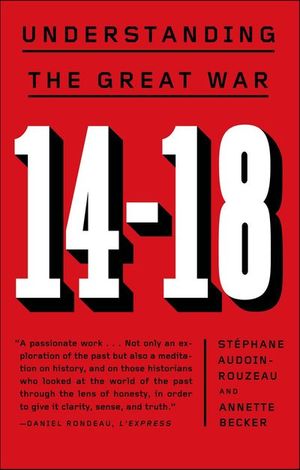14–18
Annette Becker Follow this author
Follow this author
Published by Farrar, Straus and Giroux
A reappraisal of both the nature and the effects of World War I, from the directors of the French Museum of the Great War.
“A passionate work. . . . Not only an exploration of the past but also a meditation on history, and on those historians who looked at the world of the past through the lens of honesty, in order to give it clarity, sense, and truth.” —Daniel Rondeau, L’Express
With this brilliantly innovative book, reissued for the one-hundredth anniversary of the beginning of the First World War, Stéphane Audoin-Rouzeau and Annette Becker have shown that the Great War was the matrix from which all subsequent disasters of the twentieth century were formed. They identify three often neglected or denied aspects of the conflict that are essential for understanding the war: First, what inspired its unprecedented physical brutality, and what were the effects of tolerating such violence? Second, how did citizens of the belligerent states come to be driven by vehement nationalistic and racist impulses? Third, how did the tens of millions bereaved by the war come to terms with the agonizing pain?
With its strikingly original interpretative strength and its wealth of compelling documentary evidence, 14–18: Understanding the Great War has established itself as a classic in the history of modern warfare.
“Extraordinarily lucid on complex themes. . . . [A] sophisticated attempt to recover the war’s significance. . . . Audoin-Rouzeau and Becker are directors of the Museum of the Great War in Péronne, and their book offers a splendidly readable synoptic introduction to the comparative and interdisciplinary work of that research center.” —Hew Strachan, Foreign Affairs
“An important and provocative work that offers new perspectives on a seminal conflict.” —Booklist
BUY NOW FROM
COMMUNITY REVIEWS

